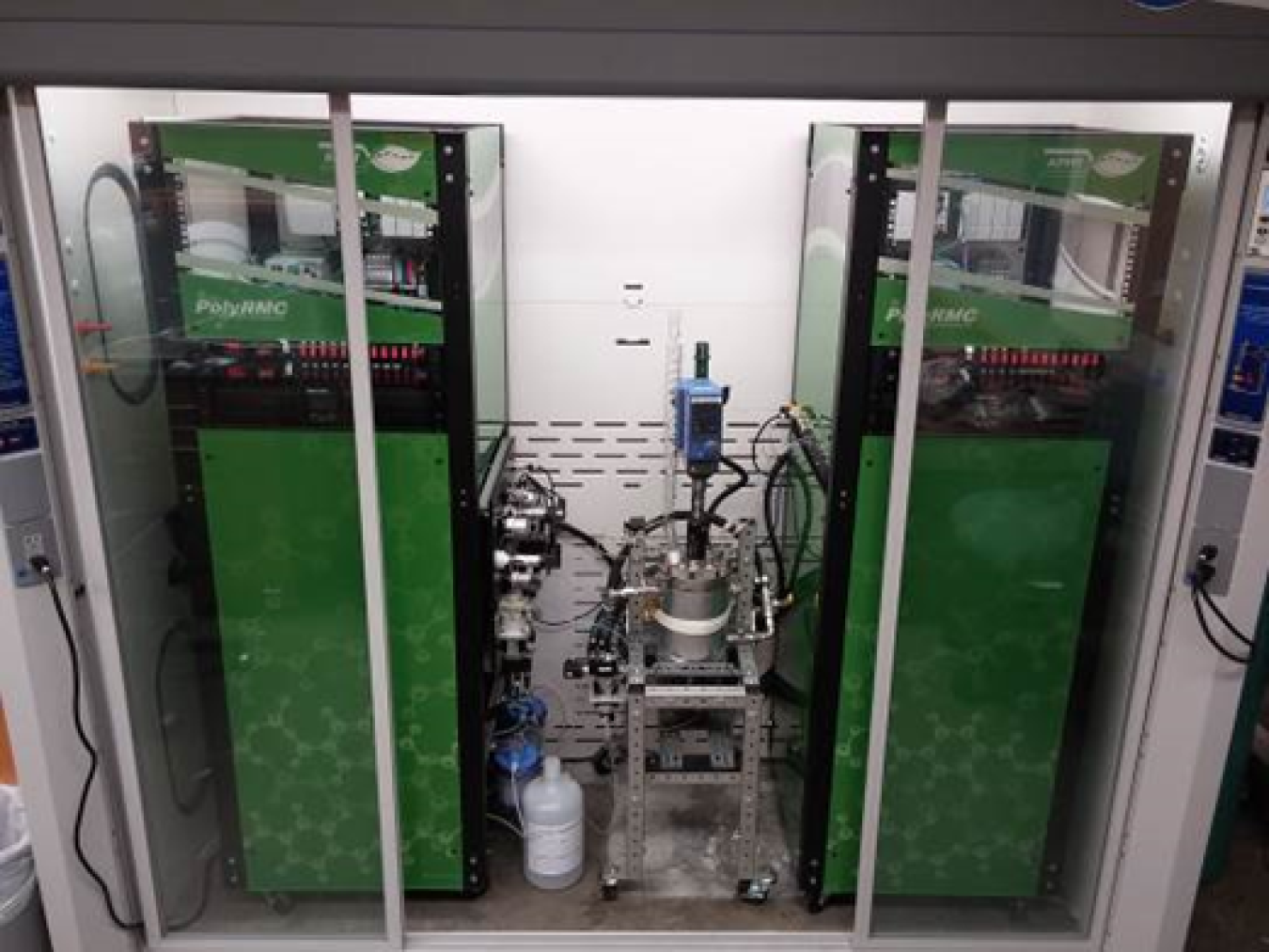AMO Sponsored Research Continues to Advance Polymer Manufacturing Methods
Advanced Materials & Manufacturing Technologies Office
July 5, 2016
A pilot-scale polymerization reactor sits in the middle, with the ACOMP system on the left side and the control interface on the right side.
Polymers play a critical role in the things we touch and use every day. They are used to make things like plastics bags and bottles, materials for clothes, medical devices such as syringes, components for phones and computers, and light-weight composites for planes, cars, and buildings. Polymers also have applications in batteries for large scale energy storage from renewable energy sources like wind and solar power. Most traditional polymer manufacturing methods involve batch processes, or processes which use a single piece of equipment to carry out every step of the polymerization from reactants to products. These processes require time-consuming and labor-intensive offline analyses to validate, perform quality control, and provide some level of process control. Operators are dependent on “recipes” and trial-and-error rather than having real-time measurements of the process. As a result of utilizing these batch processes, polymer production can be inefficient and result in wasting entire batches that do not meet quality standards.
To address the issues with traditional polymer manufacturing methods, the Department of Energy’s (DOE) Advanced Manufacturing Office (AMO) awarded $1,500,000 to Tulane University in December 2014 to use its Automatic Continuous Online Monitoring of Polymerization reactions (ACOMP) platform to develop an automated system, which could use ACOMP measurements to determine and make the required corrective actions during the process to ensure the quality of the final product.
In partnership with Louisiana State University and Advanced Polymer Monitoring Technologies, LLC, Tulane researchers were able to demonstrate a successful pilot-scale system design at the end of 2015 and the partnership is continuing to improve and scale the technology to meet commercial polymer manufacturing requirements. In May of this year Tulane demonstrated fully automatic control of molecular weight during the polymerization reactions – an important milestone to monitoring reaction progress.
The ACOMP/CI platform will be fully compatible with current polymer manufacturing infrastructure and will enable increased efficiency, reduced waste, and a reduction in production time as a result of improved quality control over batches. The next step in the project will be to develop industrial-scale prototypes, test more complicated reactions, and move toward a reliable product that can be commercialized. The project is on track to achieve fully automated control of polymerization reactions by the end of 2016.
This revolutionary research can potentially help increase energy efficiency and reduce time and waste, ultimately making U.S. polymer manufacturers more competitive. These impacts can extend across a variety of manufacturing sectors that rely on polymer-based products, including automotive, aerospace, agriculture, paints, resins, adhesives, optics, and electronics.
To learn more about this project, including the barriers and specific milestones, read our factsheet.


